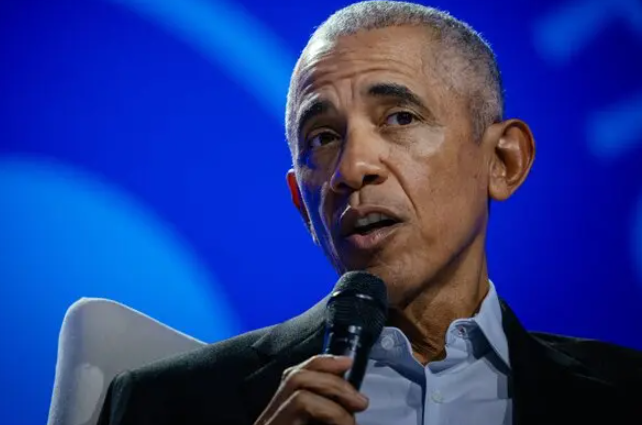Former President Barack Obama’s remarks in Erie, Pennsylvania this week may have been framed as solemn reflection on the tragic assassination of Charlie Kirk, but beneath the veneer of compassion was a familiar — and deeply misleading — narrative: blame Donald Trump.
Speaking with Steve Scully at the Jefferson Educational Society, Obama said the murder of Kirk was “horrific,” but then quickly pivoted into a subtle indictment of Trump-era “extremism,” which he implied created the conditions that led to Kirk’s death. The logic, such as it was, appeared to be that because Trump empowered people with controversial views, he must now own responsibility when one of his allies is targeted and killed.
It seems that, like many Americans, President Obama has forgotten what the Obama years were actually like. https://t.co/8wXArW4DER pic.twitter.com/R8UkPQqaJB
— Drew Holden (@DrewHolden360) September 17, 2025
Let’s set aside the ethical murkiness of using a political assassination to score rhetorical points. The bigger issue is Obama’s historical revisionism — and the selective amnesia that allows him to cast himself as a unifying statesman, standing in contrast to the dangerous radicalism of others.
In fact, the roots of today’s political division were firmly planted during the Obama years.
From the outset of his presidency, Obama chose confrontation over conciliation. On the 2008 campaign trail, he urged supporters to “get in their face” when dealing with political opponents. As president, he embraced the rhetoric and activism of the Occupy Wall Street movement, which openly called for class warfare. And when the tragic death of Trayvon Martin gripped the nation, Obama didn’t calm tensions — he inflamed them, injecting himself into the case and relying on Al Sharpton, a polarizing figure with a long record of racial demagoguery.
And let’s not forget Obama’s flirtation with radical thinkers and staff. Anita Dunn, his White House Communications Director, bizarrely praised Mao Zedong as a personal role model. Obama’s spiritual mentor for decades, Rev. Jeremiah Wright, is known for fiery sermons condemning America. While not all of these figures made it into the administration, their influence and worldview certainly did.
Obama now positions himself as a guardian of reason, warning against Trump’s supposed extremism. Yet it was his administration that labeled Tea Party conservatives as dangerous. It was his Department of Justice that spied on journalists and religious conservatives. And it was his White House that pushed through the Affordable Care Act with zero Republican support — a legislative strategy that shattered hopes for bipartisan progress and set a precedent of raw partisan muscle.
Obama never disavowed Farrakhan. He never had to. You know why? Because the “journalist” who took this photo of him deliberately hid it for the duration of Obama’s presidency and the other politicians who were there never leaked the meeting to anyone else. https://t.co/vnyxs4fulz
— Joel Pollak (@joelpollak) September 13, 2024
Then came the unilateral executive actions. In 2014, after losing the Senate, Obama issued sweeping immigration reforms by executive fiat, despite previously stating — on record — that he lacked the authority to do so. It was not unity, but consolidation of power.
Even his praise for “moderate Republicans” like Utah Governor Spencer Cox rings hollow. This is the same Obama who publicly humiliated then-Budget Committee Chair Paul Ryan, inviting him to a speech and then lambasting him to his face. Obama would later claim he didn’t know Ryan was in the room. Few believed him.
Most damning, though, is Obama’s silence on the actual motivation of Kirk’s alleged assassin. All available evidence suggests the shooter was radicalized by far-left communities, angry at Kirk’s conservative views, and at odds with his own pro-Trump father. And yet, Obama chose to conjure a narrative in which the victim — not the killer — was the byproduct of dangerous politics.
That’s not leadership. That’s opportunism.


